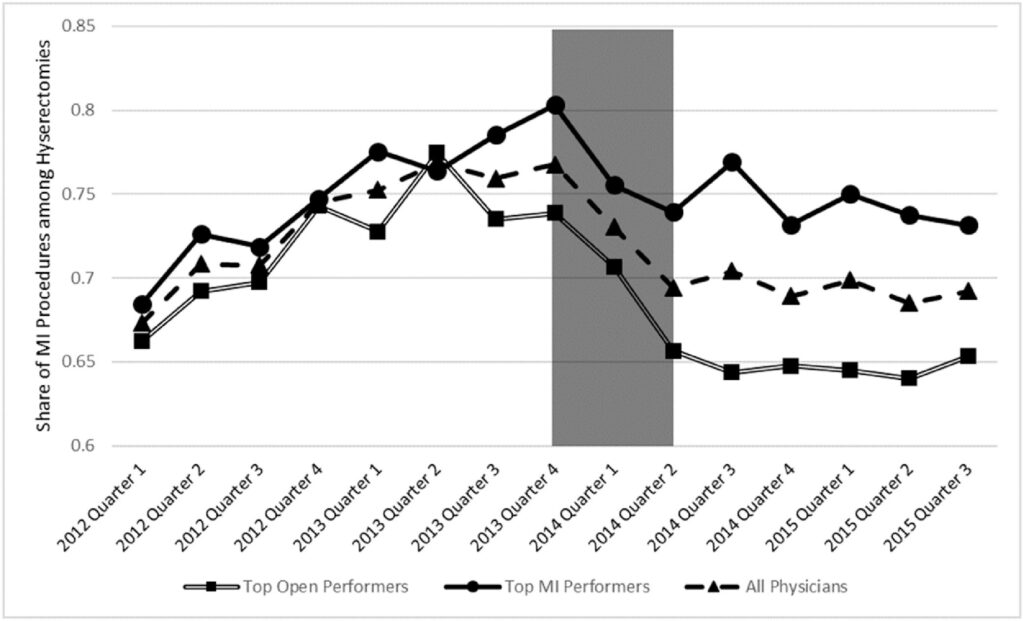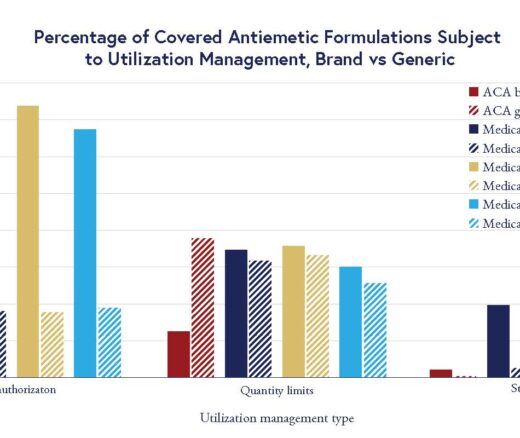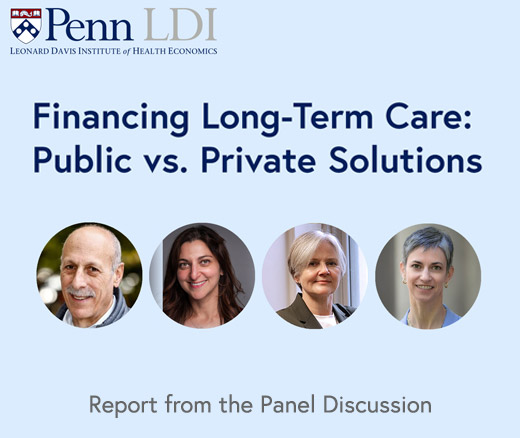
Applying for SNAP Just Got Harder—But New Evidence Shows Making It Easier May Cut Hunger
Administrative Hurdles, Not Just Income Rules, Shape Who Gets Food Assistance, LDI Fellows Show—Underscoring Policy’s Power to Affect Food Insecurity
Blog Post

While it is widely known that skill levels differ among physicians, it is not known how these skill differences affect their treatment choices. An unexpected safety warning from the U.S. Food and Drug Administration about minimally invasive hysterectomies offered us an opportunity to evaluate how a negative information shock affects clinical practice across physicians with different skill levels.
My colleague Bingxiao Wu and I evaluated data from patients who received either minimally invasive or open hysterectomies between January 2012 and September 2015 in Florida. We found that after the FDA issued a safety warning in April 2014, discouraging the use of laparoscopic power morcellation during minimally invasive hysterectomies due to evidence that it could spread undetected malignant tissue, oncologists shifted toward performing open procedures and away from the minimally invasive procedures. However, as the above chart shows, oncologists who were more skilled in performing minimally invasive procedures were far less likely to abandon this procedure compared to those who were less skilled in these procedures.
The results speak directly to policies that aim to integrate evidence-based medicine with individual practice. They demonstrate that differences in physician skill can be a key barrier to translating evidence into practice. Policies that ignore these differences may lead to negative consequences, including medical complications and, in rare cases, death.
The study, Information, Relative Skill, and Technology Abandonment, was published in the Journal of Health Economics in May 2022. Authors include Bingxiao Wu and Guy David.


Administrative Hurdles, Not Just Income Rules, Shape Who Gets Food Assistance, LDI Fellows Show—Underscoring Policy’s Power to Affect Food Insecurity

Chart of the Day: LDI Researchers Report Major Coverage Differences Across ACA and Medicaid Plans, Affecting Access to Drugs That Treat Chemo-Related Nausea

A Penn LDI Virtual Panel Looks Ahead at New Possibilities

Insurers Avoid Counties With Small Populations and Poor Health but a New LDI Study Finds Limited Evidence of Anticompetitive Behavior

The Evidence Suggests a Ban on Ads May Not Be A Well-Targeted Solution

Study of Six Large Language Models Found Big Differences in Responses to Clinical Scenarios

A Major Federal Value-Based Purchasing Program Was Designed to Cut Hospital Readmissions. LDI Fellows Say the Incentives Are Too Small to Drive Real Change

Penn LDI’s Antonia Villarruel and 10 Other Authors Map Social Determinants Across Multiple Racial and Ethnic Groups